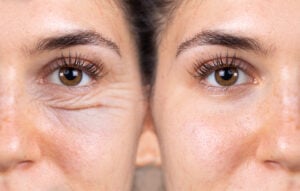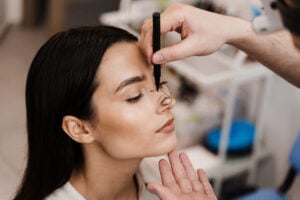Finally, deciding to have that plastic surgery you’ve wanted for years can be liberating. But it can also be stressful and confusing – especially if you’re going to a foreign country for the procedure.
Address any fears or anxieties you may have beforehand by thoroughly researching the clinic and surgeon before signing up. If you are uncertain about any part of the procedure, ask the clinic or your surgeon directly. They should be happy to alleviate any concerns you might have. Plastic surgery can be life-changing, but it’s also expensive. Any clinic should be willing to listen to you and reassure you.
The type of checks you should make when planning for treatment abroad include:
1. Confirm your doctor’s qualifications and credentials
Ensure you know the regulations and procedures for surgeons and clinics in the country where you are having the surgery. In the USA, you will want someone who is board-certified in plastic surgery by the American Board of Plastic Surgery. In the UK, it’s the General Medical Council.
2. Seek extensive background on the surgeon
Find out how long they have been practicing and ask to see some of their previous work. Surgeons take pride in their results and should have a portfolio of results available for you to see. How many times have they previously carried out the procedure you are asking for? Does the surgeon speak English so that you can communicate easily with them?
3. Ensure the clinic or hospital is accredited
That way, you will know that they adhere to proper clinical standards in terms of patient safety, equipment, clinical protocols etc. An example of an accrediting facility in the USA is the Joint Commission International (JCI) and the Accreditation Association for Ambulatory Health Care (AAAHC). In England, it’s the Quality Care Commission, and there are many others.
4. Confirm who will be performing the surgery
In some practices, the surgeon on the day of your procedure may not be the same as the surgeon who does your consultation. They may be ‘overseeing’ the procedure, with a more junior doctor or even technician (in the case of hair transplant operations) acting as the primary operator in carrying out the actual work.
5. Discuss your medical history
Regardless of the type of procedure you have booked, the clinic should ask about your medical history and your overall health, including allergies and any severe illnesses you may have. They should ask why you want the procedure, so they can suggest alternative treatments that might more effectively achieve your goals. The best surgeons will always be open with you about the realistic assessment of the final outcome.
6. Spot the red flags in your decision making process
You should gather enough information to make an informed choice about your surgery abroad and should never be pressured into making a decision. Some international clinics and hospitals can pursue “hard selling” techniques, which can lead to patients feeling pressured into making a quick decision. This is definitely a red flag and such clinics should be avoided.
7. Find out about your aftercare options
Will you require more than one surgery to achieve your desired result? You should ask about the warranty with your treatment and the clinic’s policy if anything goes wrong. For example, top-quality dental implants often have a lifetime warranty against breakages. Do they provide follow-up treatments, or is there someone you can go to in the UK rather than travelling overseas again?
8. Clarify the overall cost of your procedure
The last thing you want is to receive an unexpected bill after your treatment! Ask for a breakdown of costs and whether flights, accommodation, food, VAT and so on are included. That way, there shouldn’t be any hidden costs. Also, ask what happens if you change your mind after paying a deposit for the procedure – will it be returned to you? There are usually clear policies governing such scenarios.
9. Confirm when you will be able to fly home
Your surgeon will expect you not to board a flight until your body has rested enough post-surgery. This should minimize the risk of clots developing. Typically, the advisable rest period is seven to 10 days for breast surgery, liposuction, and facial procedures before flying.
10. What if there are complications?
No surgery is 100% risk-free – and that includes cosmetic procedures. Find out what happens if your surgery does go wrong. For instance, does the clinic have indemnity insurance? Do you have private medical insurance with coverage for such scenarios? Who should you speak to in this instance? Ask for a named doctor rather than a helpline number.
It’s always worth doing due diligence before deciding on surgical treatment abroad. After all, if you’re from the UK, then the NHS is under no obligation to ‘fix’ a procedure that didn’t go the way you hoped. Complications with surgery abroad are not commonplace, but they can happen – especially if the surgeon or clinic is unregulated.
Medical Travel Market is launching agency services to connect patients with the world’s most advanced hospitals and clinics. Sign up to stay informed.













